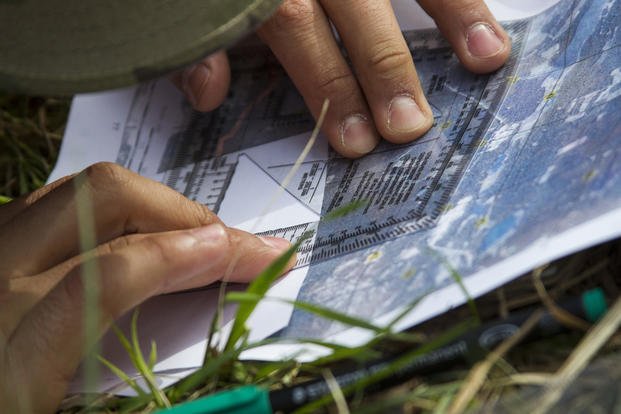Soldiers aiming to get their stripes will soon need to brush up on their map-reading skills and grid plotting.
The Army plans to increase the length of its Basic Leader Course, or BLC, in fiscal 2026, which starts in October 2025, Sgt. Maj. Jason Stadel, a service spokesperson told Military.com. Among the plans is adding about three days to the school, fundamentally shifting the course from mostly sticking to academics and policy to reintegrating combat training, with land navigation taking center stage.
"It builds personal confidence when you go out in the woods, and you got to use the old stuff," Sergeant Major of the Army Michael Weimer told Military.com in an interview.
Read Next: 'Last Stop USA': How the Army Is Trying to Fill in for a Broken Education System
The Army cautioned on Monday that the plans were still being finalized, and the total number of days added to the BLC could change.
The move has long been in development for the service because adding even just a few days to a school course creates significant financial costs. The change also makes it more difficult for part-time troops in the National Guard or reserve to attend as they juggle civilian jobs.
Service leaders have been aiming to add fieldcraft and combat tactics to the training as part of a larger effort to get non-combat arms troops brushed up on basic soldiering skills.
Land navigation has been central to that effort, tasking soldiers with plotting points on a map with a protractor and finding spots in the woods using a compass. Even for noncommissioned officers in support units, land navigation is a critical task for resupply and other basic logistics.
The now 22-day BLC is a requirement for soldiers to be promoted to sergeant. It marks a key career transition toward holding leadership roles and effectively being responsible for the professional development and well-being of others.
Currently, virtually all of that required schooling is spent in the classroom learning writing skills, how to process awards and Army regulations.
The Army tested out bringing back land navigation to BLC in the spring of 2022. Out of roughly 900 soldiers in that pilot, half failed.
"[That] confirms to me, the soldiers aren't doing it in their units, or they're not doing it to the standard," Weimer said, highlighting the relatively low use of fundamental land navigation without GPS during the wars in Iraq and Afghanistan.
"When you keep going back to the same valley, and you're driving the same route, and the same vehicles, and you're using the same GPS technology … you've got first sergeants, battalion [command sergeants major] that have never actually used land nav."
Army officials have reported a degradation in the quality of land navigation skills from units going on Combat Training Center, or CTC, rotations. Land navigation is also among the top reasons soldiers fail elite courses such as Ranger School and Special Forces Assessment and Selection.
Even for soldiers in combat arms roles, such as infantryman or cavalry scouts, using a map and compass has become less prevalent since the Global War on Terror conflicts saw the heavy use of GPS tools. But those may be less useful in a conventional war, with cyber attacks expected to play a key role in disrupting units.
The Army has made several major recent efforts to make combat skills training a higher priority, especially for soldiers who are not in combat roles.
The service introduced the Expert Soldier Badge in 2019, which requires the same test infantrymen have been taking for years to measure proficiency in basic combat skills such as land navigation and weapon competency. This year, those badges have become more valuable in terms of points toward promotion.
-- Steve Beynon can be reached at Steve.Beynon@military.com. Follow him on X @StevenBeynon.
Related: Have Soldiers Forgotten How to Use a Map and Compass?














